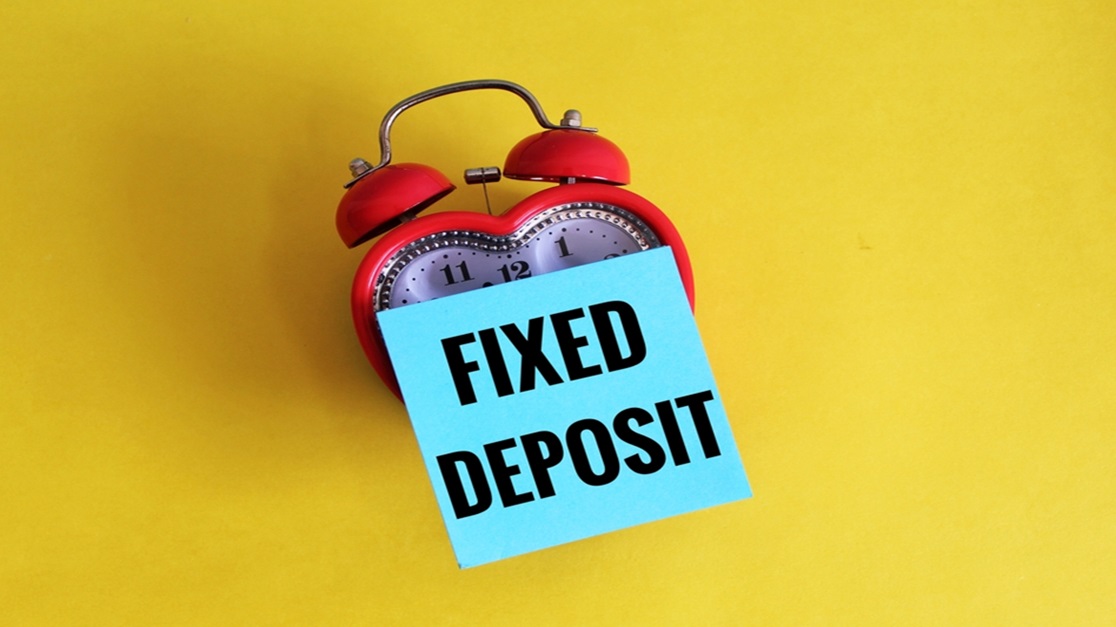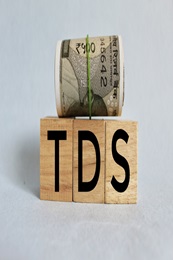Fixed Deposits vs Bonds: A Comparative Analysis
April 15, 2025

In the Indian investment landscape, two of the most popular options for conservative investors seeking stable returns are Fixed Deposits (FDs) and Bonds. Both instruments offer fixed income but differ significantly in terms of risk, returns, liquidity, and tax implications. In this blog, we will provide a detailed comparison between FDs and bonds, helping you make informed decisions.
What are Fixed Deposits?
Fixed Deposits or bank deposits are offered by banks and Non-Banking Financial Companies (NBFCs) where you deposit a lump sum amount for a predetermined tenure at a fixed interest rate. Upon maturity (for cumulative FDs where the interest in paid out at the time of maturity), you will receive the principal amount along with the accrued interest.
In case you are looking for a regular income stream, you have the option to select non-cumulative FDs. Such FDs offer regular/periodic interest payments (monthly, quarterly or annually).
Key Features of Fixed Deposits include:
- Safety: FDs are considered safe investment options as they are insured up to ₹5 lakhs by the Deposit Insurance and Credit Guarantee Corporation (DICGC) per depositor per bank.
- Higher Interest Rates: Small Finance Banks like Ujjivan offer high-interest FDs, allowing you to maximise your savings.
- Fixed Returns: The interest rate is fixed at the time of deposit and does not fluctuate with market conditions.
- Liquidity: While FDs can be prematurely withdrawn, this often incurs penalties or reduced interest rates. Please note that Ujjivan Small Finance Bank does not charge any premature FD penalty for withdrawals made after 6 months from the time of deposit.
What are Bonds?
Bonds are debt securities issued by governments, municipalities, or corporations to raise capital. When you invest in bonds,you're lending money to the issuer in exchange for periodic interest payments and the return of the principal at maturity.
Key Features of Bonds include:
- Varied Risk Levels: Bond risk can vary significantly based on the issuer's creditworthiness. Government bonds are generally safer than corporate bonds.
- Market Fluctuations: Bond prices can fluctuate based on interest rate changes, which may affect their liquidity and market value.
- Tax Implications: Some bonds, especially tax-free bonds issued by government entities, offer tax advantages.
Comparative Analysis: Fixed Deposits vs Bonds
Parameter | Fixed Deposits (FDs) | Bonds |
Issuer | Banks and NBFCs | Governments, municipalities, and corporations |
Risk Level | Low risk, insured up to ₹5 lakhs | Varies; government bonds are safer than corporate bonds |
Returns | Fixed and predictable; generally lower than bonds | Potentially higher returns, but subject to market risks |
Liquidity | Less liquid; penalties for premature withdrawal | More liquid; can be traded on stock exchanges |
Payout Frequency | Interest paid at maturity or periodically as chosen | Typically semi-annual or annual payments |
Taxation | Interest is taxable as per the investor's tax slab | Tax treatment varies; some bonds are tax-free |
Accessibility | Easily accessible through banks and NBFCs | May require knowledge of the market for retail investors |
Tenure | Typically ranges from 7 days to 10 years | Can range from 1 year to 40 years |
Key Considerations for Investors
When deciding between Fixed Deposits and Bonds, investors should consider the following factors:
- Risk Appetite: Investors with a low-risk tolerance may prefer FDs due to their guaranteed returns and insurance coverage. In contrast, those willing to accept some risk for potentially higher returns might opt for bonds.
- Investment Horizon: FDs are suitable for short—to medium-term investments, while bonds can accommodate both short—and long-term investment strategies.
- Liquidity Needs: If immediate access to funds is a priority, FDs may be less appealing due to penalties on premature withdrawals. Bonds, being tradable, may offer better liquidity.
- Tax Efficiency: Investors should evaluate the tax implications of both investment options. Tax-free bonds can provide significant advantages compared to taxable FD interest.
Final Thoughts
Fixed Deposits and Bonds are viable investment options for Indian investors seeking fixed income. The choice between the two ultimately depends on your financial goals, risk tolerance, and investment horizon. As always, consulting with a financial advisor to tailor investment strategies that align with personal financial objectives is advisable.
Looking to grow your savings? Ujjivan SFB offers a wide range of fixed deposit products. Select the FD of your choice and take a step forward to your financial goals. Alternatively, you can browse through Ujjivan SFB product suite - our wide range of financial products are designed to make your financial life better.
FAQs
1. What is the main difference between FDs and Bonds?
The primary difference lies in their structure and returns. Fixed Deposits offer a fixed interest rate. Bonds, however, can provide variable returns depending on market conditions and the issuer's creditworthiness. FDs are generally simpler and safer, while bonds offer a range of risk and return profiles.
2. Which is safer: Fixed Deposits or Bonds?
Fixed Deposits are generally considered safer because they are backed by the Deposit Insurance and Credit Guarantee Corporation (DICGC) up to ₹5 lakh per depositor per bank. Bonds, particularly government bonds, are also safe but carry market risk.
3. Can I withdraw money from FDs before maturity?
Yes, you can withdraw money from FDs before maturity, but this typically incurs a penalty, which can reduce the interest earned. Some banks offer a premature withdrawal facility with lower penalties.
4. Are Bonds taxable in India?
Yes, most bonds are taxable in India. The interest earned is added to your income and taxed according to your income tax slab. However, there are tax-free bonds issued by government entities where the interest is exempt from tax.
5. What is the typical tenure for Fixed Deposits?
Fixed Deposits typically offer a wide range of tenures, from as short as 7 days to as long as 10 years. This flexibility allows investors to choose a tenure that aligns with their financial goals and liquidity needs.
6. How do Bond yields compare to FD interest rates?
Bond yields can often be higher than FD interest rates, especially in a rising interest rate environment. However, bond yields are subject to market fluctuations and credit risk, whereas FD rates are fixed and guaranteed. Ujjivan SFB offers high-interest FDs that offer bond-like returns at a much lower risk.
7. Are Corporate Bonds riskier than Government Bonds?
Yes, Corporate Bonds are generally riskier than Government Bonds due to the credit risk associated with the issuing corporation. Government Bonds are backed by the government, making them one of the safest investment options. Corporate Bonds offer higher yields to compensate for the increased risk, making them suitable for investors with a higher risk tolerance.
8. Do FDs offer better liquidity than Bonds?
FDs offer better liquidity as you can withdraw funds before maturity. Bonds can be sold in the secondary market, but their liquidity depends on market conditions and the bond's demand.
9. Can Bonds offer regular income like FDs?
Yes, many bonds offer regular interest payments, similar to the interest payouts from FDs. These payments can be monthly, quarterly, or annually, depending on the bond's terms.
10. Which is better for long-term investment: FDs or Bonds?
For long-term investment, bonds may offer better returns due to their potential for capital appreciation and higher yields. However, FDs provide stability and safety, making them ideal for risk-averse investors. The choice depends on the investor's risk tolerance, financial goals, and market outlook.
Latest Blogs

Telangana Housing Board & KPHB Colony: A Guide to Affordable Urban Housing in Hyderabad
March 14, 2025
As Telangana continues its rapid urbanisation journey, two key housing entities—Telangana Housing Board (THB) and Kukatpally Housing Board Colony (KPHB)—have played critical roles in shaping the state's real estate ecosystem.

Does Checking CIBIL Score Frequently Lower Your Credit Points?
April 07, 2025
Imagine you're planning to apply for a home loan, a credit card, or even a car loan. Naturally, you want to ensure your CIBIL score is in good shape before proceeding.

Explained: Can NRIs Buy an Agricultural Land in India?
April 03, 2025
Real estate investment is often a top priority for Non-Resident Indians (NRIs) looking to retain strong financial ties to India.

How to Improve Your CIBIL Score from 600 to 750: A Step-by-Step Guide
April 02, 2025
Your CIBIL score is like your financial reputation—banks check it before approving loans or credit cards. If your score is hovering around 600, you might face difficulties in securing credit or may get loans with higher interest rates.

What Happens When You Leave Your Savings Account Unused?
April 01, 2025
Imagine waking up one day to find that your hard-earned money is locked away and inaccessible. Sounds stressful, right? This is precisely what happens when you leave your Savings Account inactive for too long.





